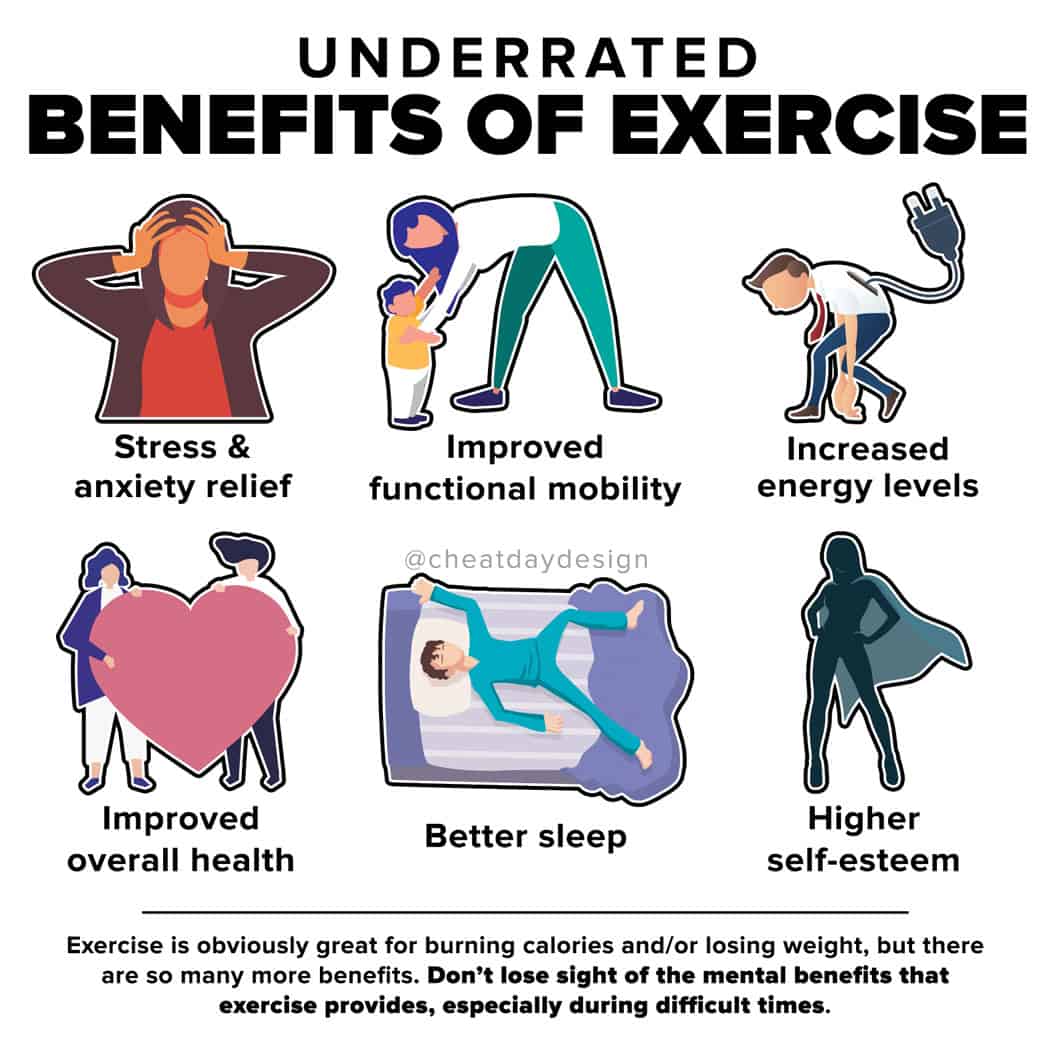Benefits of Movement
The Importance of Movement for a Healthy Lifestyle
Regular physical movement is crucial for maintaining a healthy lifestyle. It not only helps in maintaining a healthy weight but also improves overall physical and mental well-being. In this article, we will explore the numerous benefits of movement and how it can positively impact your life.
Enhanced Physical Fitness
Engaging in regular physical activity improves physical fitness. It strengthens muscles and bones, enhances cardiovascular health, and increases flexibility and endurance. By incorporating movement into your daily routine, you can experience improved stamina, reduced risk of chronic diseases, and increased energy levels.
Weight Management
Movement plays a vital role in weight management. When combined with a balanced diet, regular physical activity can help you maintain a healthy weight or even lose excess pounds. It boosts metabolism, burns calories and promotes the development of lean muscle mass. Incorporating activities like walking, jogging, or strength training into your routine can contribute to achieving your weight management goals.
Mental Well-being
Physical movement not only benefits the body but also has a positive impact on mental health. Regular exercise releases endorphins, which are known as “feel-good” hormones. These endorphins help reduce stress, anxiety, and symptoms of depression. Engaging in physical activity also improves cognitive function, enhances focus and concentration, and promotes better sleep patterns.
Reduced Risk of Chronic Diseases
A sedentary lifestyle is associated with an increased risk of various chronic diseases, including heart disease, diabetes, and certain types of cancer. By incorporating movement into your daily routine, you can significantly reduce the risk of developing these conditions. Regular physical activity helps maintain healthy blood pressure, lowers cholesterol levels, and improves blood circulation, thereby reducing the likelihood of chronic diseases.
Improved Immune System
The movement has a positive impact on the immune system. Regular exercise improves the circulation of immune cells in the body, making it more efficient in fighting off infections and diseases. Engaging in physical activity also helps flush out toxins from the body through increased sweating, which further supports a healthy immune system.
Enhanced Brain Health
Physical movement is not only beneficial for the body but also for the brain. Regular exercise promotes the growth of new brain cells and improves overall brain function. It enhances memory, increases creativity, and reduces the risk of cognitive decline and age-related neurodegenerative diseases. Incorporating activities that involve coordination and balance, such as dancing or yoga, can be particularly beneficial for brain health.
Increased Productivity
Movement can significantly boost productivity levels. Engaging in physical activity improves focus, enhances cognitive abilities, and increases energy levels. Taking short movement breaks throughout the day, such as stretching or going for a quick walk, can help combat mental fatigue and improve overall productivity and efficiency.

Incorporating movement into your daily routine is essential for maintaining a healthy lifestyle. The benefits of movement are far-reaching, impacting both physical and mental well-being. By engaging in regular physical activity, you can enhance your physical fitness, manage weight, improve mental health, reduce the risk of chronic diseases, boost the immune system, enhance brain health, and increase productivity. Start incorporating movement into your life today to experience these incredible benefits!
Frequently Asked Questions
1. Why is movement important for our health?
Movement is essential for maintaining a healthy lifestyle as it helps improve cardiovascular health, strengthen muscles and bones, boost mood and mental well-being, and enhance overall physical fitness.
2. How much movement do I need each day?
The American Heart Association recommends at least 150 minutes of moderate-intensity aerobic activity or 75 minutes of vigorous-intensity aerobic activity per week, along with muscle-strengthening activities at least twice a week.
3. Can movement help with weight management?
Absolutely! Regular physical activity can contribute to weight loss or weight maintenance by burning calories and increasing metabolism. It also helps build lean muscle mass, which further aids in weight management.
4. Does movement improve mental health?
Yes, movement has a positive impact on mental health. Engaging in physical activity releases endorphins, which are natural mood boosters. It can reduce symptoms of anxiety and depression, improve sleep quality, and enhance overall cognitive function.
5. Can movement reduce the risk of chronic diseases?
Absolutely! Regular movement can lower the risk of chronic conditions such as heart disease, type 2 diabetes, certain cancers, and osteoporosis. It also helps manage conditions like high blood pressure and cholesterol levels.
6. Is movement beneficial for older adults?
Yes, movement is particularly important for older adults. It helps maintain mobility, balance, and flexibility, reducing the risk of falls and injuries. Regular physical activity can also improve cognitive function and reduce the risk of age-related diseases.
7. How does movement affect our energy levels?
Movement increases blood flow and oxygen supply to the muscles and tissues, which can boost energy levels and combat feelings of fatigue. Regular exercise also improves sleep quality, leading to increased daytime energy.
8. Can movement improve our immune system?
Yes, moderate-intensity movement can enhance the immune system by promoting the circulation of white blood cells and antibodies. Regular exercise has been shown to reduce the risk of viral and bacterial infections.
9. Does movement have any benefits for brain health?
Absolutely! Physical activity improves brain function and cognitive abilities. It enhances memory, attention span, and overall mental performance. Regular movement also reduces the risk of age-related cognitive decline and neurodegenerative diseases.
10. Can movement improve our overall quality of life?
Definitely! Engaging in regular physical activity not only improves physical and mental health but also enhances overall quality of life. It increases self-confidence, reduces stress levels, promotes social interaction, and provides a sense of accomplishment and well-being.




